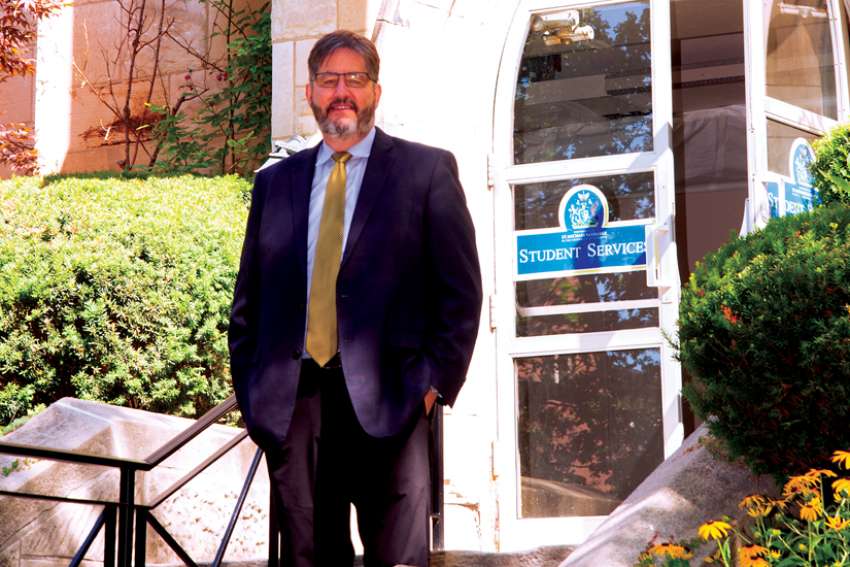“Committee work is now focused on how the two institutions can accomplish a partnership rather than whether it can or will happen,” said a March 16 update from Basilian Fr. Don McLeod and Peter Warrian, co-chairs of the Regis-USMC Steering Committee.
The steering committee set itself a deadline of the end of June to come up with “specific, concrete recommendations to the Regis and University of St. Michael’s College governing bodies.”
The two graduate faculties, both members of the Toronto School of Theology at the University of Toronto, launched talks last year aimed at some form of merger. Regis is a Jesuit institution which grants both pontifical and secular degrees in theology. St. Michael’s was founded in 1852 by the Basilian Fathers and grew gradually into an undergraduate college and a graduate school of theology allied with the Pontifical Institute for Medieval Studies, home to the Elliott Allen Institute for Theology and Ecology and the Metropolitan Andrey Sheptytsky Institute of Eastern Christian Studies.
The two schools together would wield considerable heft in the world of advanced theological studies, said Regis College academic dean Sr. Susan Wood of the Sisters of Charity of Leavenworth.
“A closer alliance between USMC and Regis has significant potential to position both institutions to offer a unique contribution to global theological education,” Wood told The Catholic Register in an email.
From the St. Michael’s point of view, the alliance is an opportunity to strengthen what they’ve got and add new ventures, said St. Mike’s president David Sylvester.
“This anticipated alliance offers the opportunity to strengthen investment in proven areas like the Elliot Allen Institute for Theology and Ecology, the Fraser Centre for Practical Theology,” Sylvester said in an e-mail. “And to increase capacity to build new programs.”
At Regis, president Fr. Thomas Worcester believes the two institutions together “can energize and magnify our joint effort to serve the Church in all places.”
Wood views the supercharged alliance of theological research and education on the University of Toronto’s downtown campus as a response “to a current crisis in theological education.”
“In one instance, theology becomes a detached theology at a universal level, emptied of its heart, soul and passion within an enclosed citadel of academia,” she wrote. “In the other instance, theology becomes a higher level of catechesis that repeats Church teaching but does not deepen the Church’s thinking or address the concerns of an increasingly secular world.”
The new alliance hopes to be a resource for the Church in Canada, both in formation of future ministers — lay and ordained — and on the frontiers of theological research, said Wood.
“A Catholic university should be the place where the Church does its thinking,” she said.


